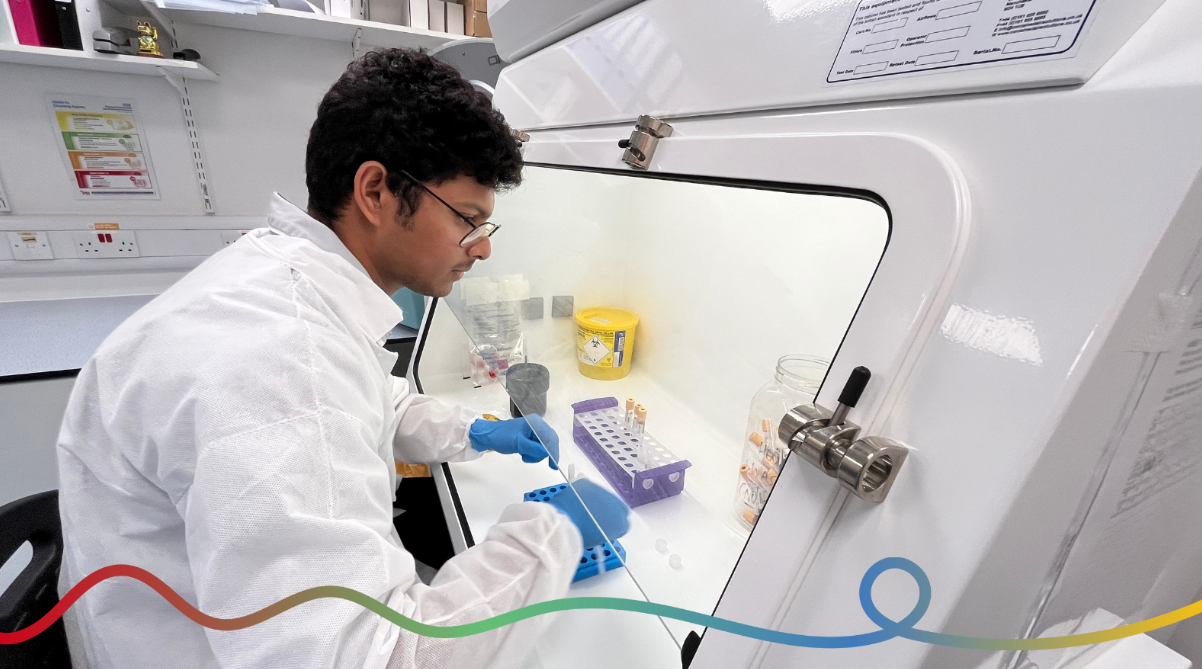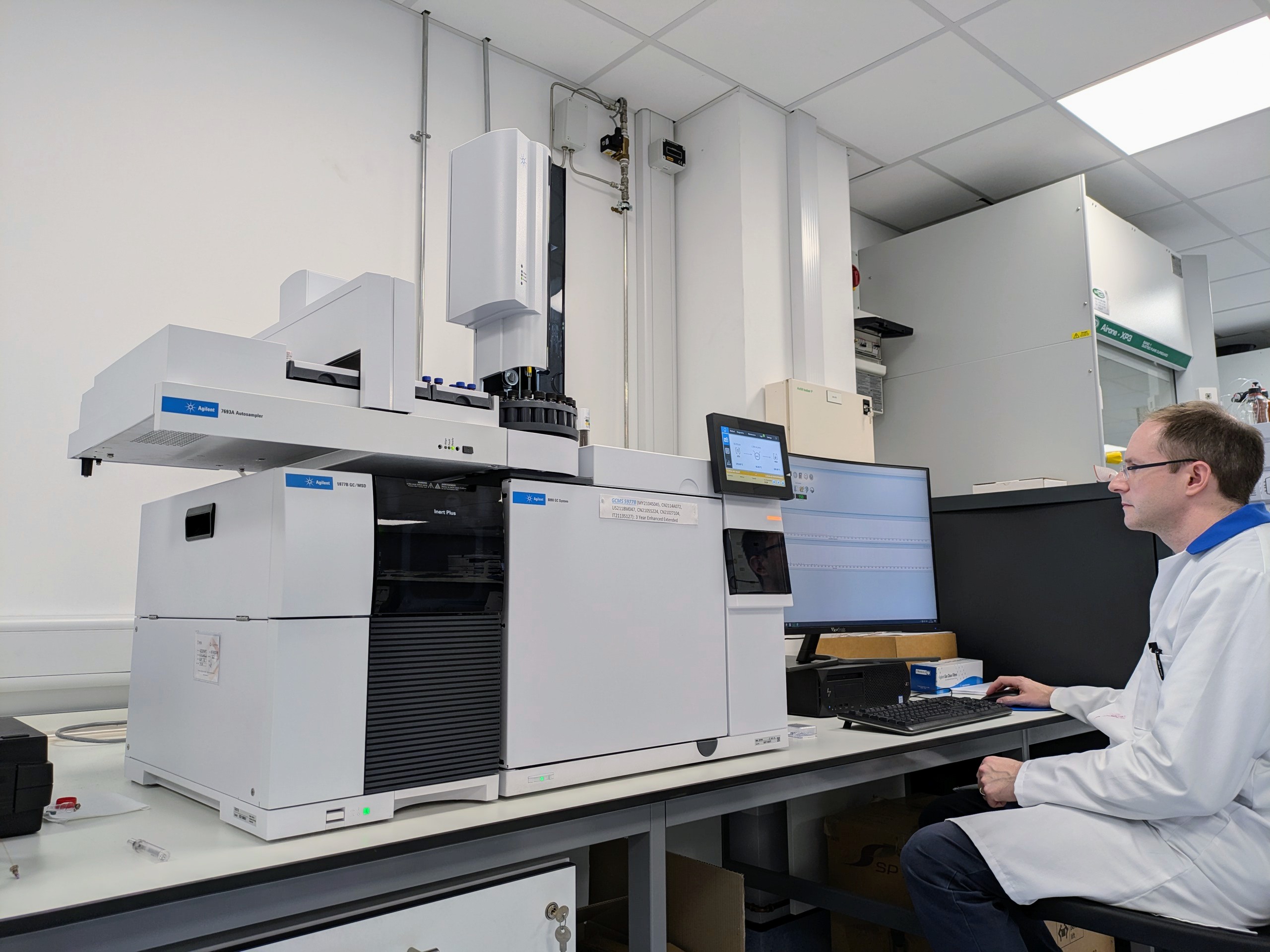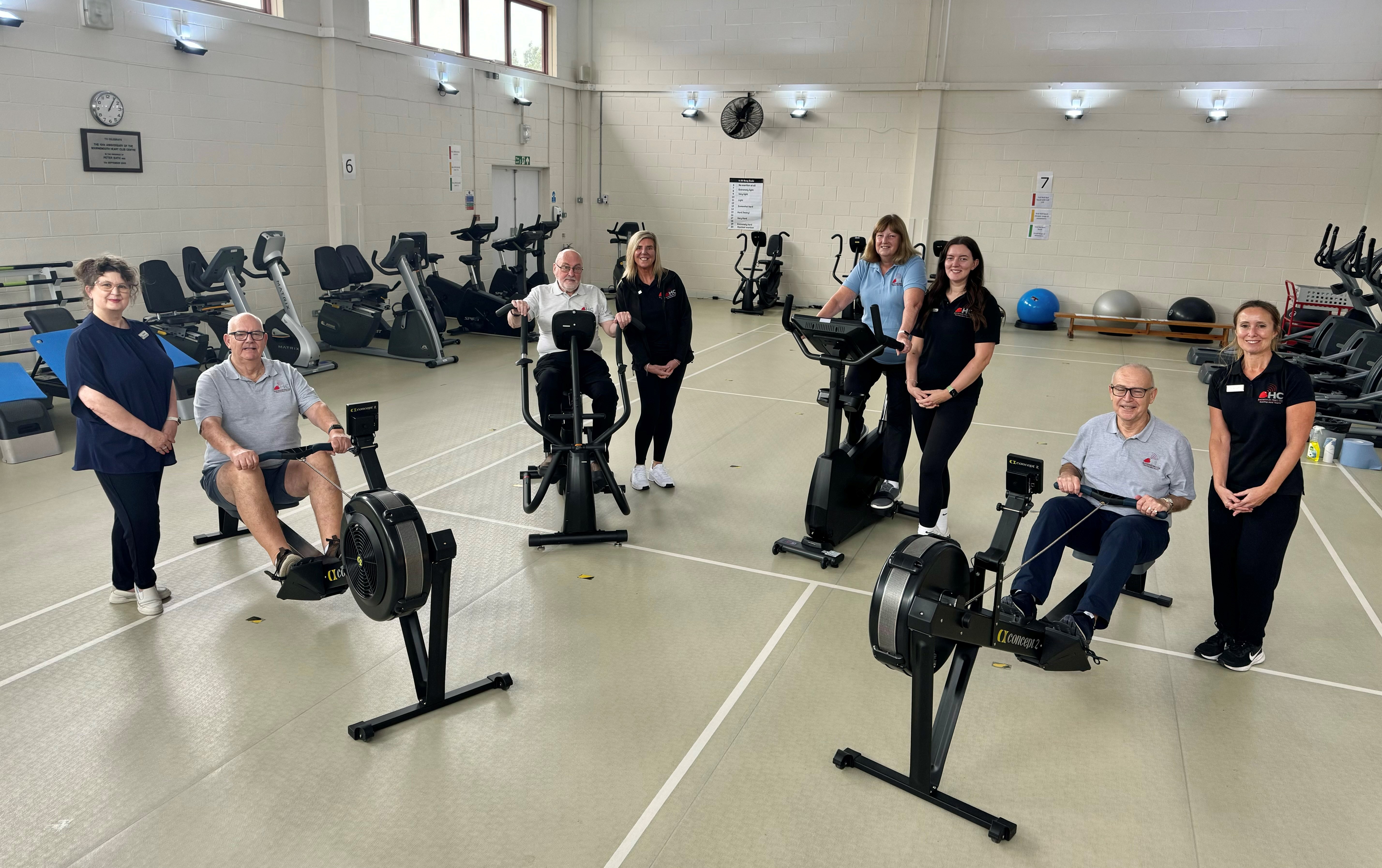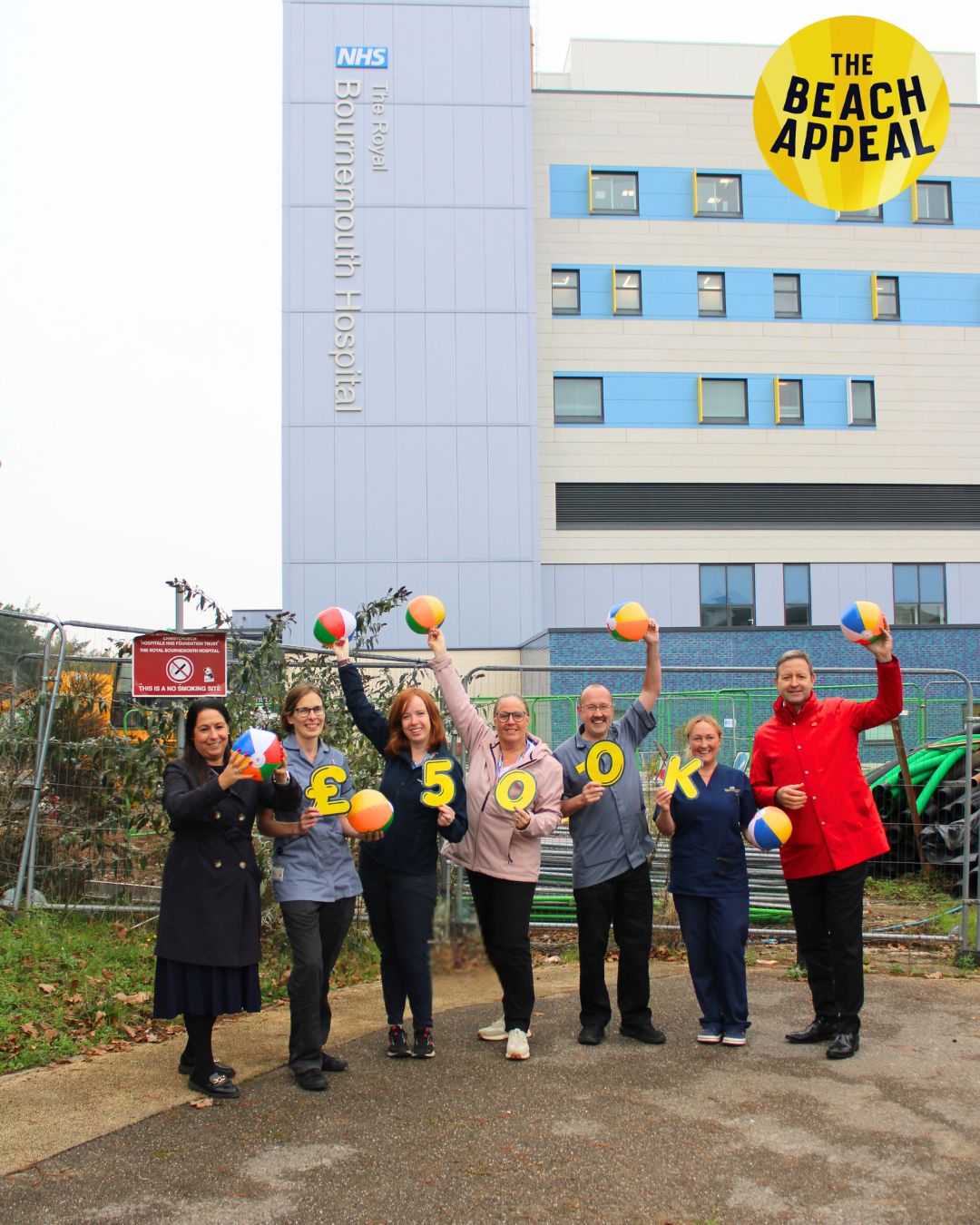New Wessex-based Commercial Research Delivery Centre
Wessex Research Hubs is delighted to have been successful in its bid to become an officially-designated Commercial Research Delivery Centre (CRDC), part of a new national network funded by the National Institute for Health and Care Research (NIHR).
The new centres will enhance the speed and efficiency of commercial clinical research delivery, contributing to the health and wealth of the nation. They will work with industry and other research delivery infrastructure to support the UK’s status as one of the best places in the world for innovative companies to bring their portfolio of research.
The new Wessex-based CRDC builds on the success of four existing research hubs in Portsmouth, Southampton, Bournemouth and Weymouth. Since opening, people from across the region have benefitted from being able to take part in vitally important public health studies in their local area.
The unique, cross-organisation and pan-regional approach of Wessex Research Hubs began as an emergency response to the COVID-19 pandemic and now brings together five NHS Trusts with one large GP practice. Since opening, staff from all sites have run late-phase, large scale clinical trials across four different facilities, supported by the NIHR’s Regional Research Delivery Networks.
Under an enhanced model, the new CRDC will:
-
Further increase access for the public across Hampshire, Dorset and the Isle of Wight to participate in important research to advance healthcare
-
Help shift clinical trials beyond large hospital trusts into community settings, meaning those in underserved areas will have better access
-
Expand the use of our two mobile research units to support more trials in the community
-
Support more GP practices to become research active, bringing trials even closes to people’s homes
-
Work with patient and public involvement and engagement officers to build local links with communities to increase the diversity of our recruitment
-
Broaden our range of research to include trials for both healthy volunteers and patients with conditions – widening access to innovative treatments and interventions
-
Create opportunities for people living in Salisbury and Basingstoke to take part in research
-
Provide access to a network of commercially active sites with gold-standard set-up times and performance
-
Build links with industry, leading to greater inward investment into the Wessex area and the UK as a whole
Several local organisations will collaborate to deliver and support the new NIHR Commercial Research Delivery Centre:
-
University Hospital Southampton NHS Foundation Trust (lead)
-
Portsmouth Hospitals University NHS Trust
-
University Hospitals Dorset NHS Foundation Trust
-
Dorset County Hospital NHS Foundation Trust
-
Dorset HealthCare University NHS Foundation Trust
-
Hampshire Hospitals NHS Foundation Trust
-
Salisbury NHS Foundation Trust
-
The Adam Practice, Poole
-
South Central Ambulance Service
-
Hampshire and Isle of Wight Healthcare NHS Foundation Trust
-
NHS Dorset
-
NHS Hampshire and Isle of Wight
-
South Central Regional Research Delivery Network
-
South West Central Regional Research Delivery Network
The new NIHR CRDC will be under the governance of Wessex Health Partners, a regional partnership working to accelerate improvements in health and care through research and innovation.
Dr Patrick Moore, a Poole-based GP, and Director of the new NIHR CRDC said: "Many participants in our trials are motivated by a strong desire to give back to the NHS and contribute to groundbreaking medical advancements that could improve the health and care of others in the future. With this expansion, even more people will have the opportunity to take part in vital research, driving meaningful improvements both regionally and beyond."
Prof Saul Faust, Co-Director of the new CRDC, said: "Becoming an official CRDC is a great milestone for Wessex Research Hubs. What makes this even more special is the opportunity to continue working as a collaborative team across the whole region. Being part of the new national network is an exciting development that will help us to offer taking part in clinical trials to many more people."
Dr Karen Underwood, Director of Research & Development at University Hospital Southampton, said: “Delivering research that impacts on our patients and communities is fundamental to our vision. I am proud that our Trust is supporting this regional initiative and look forward to working together with partners to deliver patient-centred and inclusive commercial research.”
Christine McGrath, Managing Director of Wessex Health Partners, said: “When we came together as Wessex Health Partners during the pandemic, we created a trailblazing new model which elevated pan-regional working to a whole new level. Our new CRDC will build on this work further, showing that by working together we can achieve so much more regionally, nationally and globally.”
Kirsty Gladas, Senior Research Nurse Manager at South Central Regional Research Delivery Network, said: “We are excited to be able to offer more research opportunities to our communities, and ultimately contribute to the improvement of health and wealth in the region.”
A CRDC Network will be established to coordinate activities across the UK’s CRDCs, providing national leadership, alignment and strategic engagement, and enhancing the capacity and efficiency of commercial research delivery across the centres.
The CRDCs are a critical scheme that supports UK Clinical Research Delivery – a cross sector programme of work aimed at creating a faster, more efficient, more accessible and more innovative clinical research delivery system, making the UK a world leader in clinical trials.

Picture courtesy of Wessex Health Partners
A portable device that could detect skin cancer could be on the horizon
A collaborative project between Bournemouth University (BU) and University Hospitals Dorset (UHD), is aiming to identify the chemical compounds specific to skin cancer sites and develop a portable diagnostic device to detect them.

Skin cancer sites are known to release volatile organic compounds (VOCs) – organic chemicals which easily evaporate.
The study aims to identify the VOCs which are specific to skin cancers and develop a rapid, portable device which can detect them.
The project is being undertaken by a team from the Department of Life and Environmental Sciences at BU and the Oral and Maxillofacial Surgery Unit at UHD.
Professor of Bioanalytical Chemistry at BU Richard Paul, who is leading the study said: “People with suspected skin cancer usually present at their GP surgery, where a doctor is tasked with making a visual assessment before deciding whether to refer the patient for specialist assessment. Skin cancers can be difficult to diagnose and as such, the rates of unnecessary referrals for specialist assessment are high.
“Our research towards the development of a rapid sensor, specific to skin cancers and deployable in a point of care device is an exciting prospect. This would enable rapid detection of skin cancer in primary care, enhancing patient triage and improving patient outcomes.”
The three-year clinical study will take place at Poole Hospital and follows a pilot study which developed a custom extraction device to capture the VOCs released from skin cancer sites.
The trial developed a non-invasive approach for VOC collection from skin cancer patients which can be used during routine appointments and revealed the potential VOC biomarkers associated with skin cancers.
Professor Paul added: “Our latest funding will allow us to validate this approach over a major three year clinical study on skin cancer patients, and to undertake work to develop new portable skin cancer detection technology for use in primary care.
“Our vision is a user-friendly, rapid sensor, capable of detecting skin cancers which does not require specialist training to use. Such a device could be confidently used by a range of medical professionals in primary care, including nurses, and would enhance the detection of skin cancers.”
Co-investigators on the study include members of the Analytical Science Research Group (ASRG) at BU - Dr Ramin Boroujerdi and Dr Santanu Majumder - alongside Professor in Human Computer Interaction Huseyin Dogan and Professor Velupillai Ilankovan, Consultant maxillofacial/head and neck surgeon at UHD.
Professor Ilankovan said: “This research will change the cancer management pathway with early recognition and reducing unnecessary referral to secondary care.”
Healthy outlook for Bournemouth Heart Club
The Bournemouth Heart Club (BHC) has celebrated a successful year thanks to increased membership and innovative collaborations with different teams from the Royal Bournemouth Hospital.
The news has been particularly welcome following a dramatic decline in attendance, as well as significant operating losses due to the effects of the Covid-19 pandemic.
Founded in 1996, the BHC was formed to provide a dedicated facility for the rehabilitation of patients who had undergone cardiac interventions such as a by-pass or stents. Additionally, the aim was to prevent further cardiovascular events by encouraging patients and their partners to become members and take part in regular exercise. BHC has since become a Registered Charity, with running costs paid for by class fees, fundraising, and legacies.
Membership has grown back to 750 since the pandemic, with new rehabilitation classes added for other health conditions such as Type 2 Diabetes and COPD. The club has also seen an increase in members to its 'Keep Well' programme, which encourages people with qualifying medical conditions to self-refer for a health assessment and bespoke exercise schedule.

Trustees and team members from the Bournemouth Heart Club
One of the Club's more recent and successful collaborations has been with UHD's Diabetes Team. The ‘Refocusise’ exercise and education classes that run regularly mean that Dorset is the only primary health care provider in the UK to have both Cardiac and Type 2 Diabetes rehabilitation programmes running within the same county.
Another joint venture with the UHD Upper GI Cancer Team has seen funding from NHS Dorset for a pilot scheme aimed at the pre-habilitation of 20 cancer patients undergoing treatment or prior to their surgery, with Macmillan Cancer Support funding specialist training for two club instructors to assess patients and manage their exercise programmes.
BHC Treasurer, Nigel Priest, said: “While I’m delighted that we are announcing positive results for the Charity, we cannot be complacent and are aiming to reach a target of 1000 exercising members by 2026. Also running a timetable of over 40 classes, 6 days a week across two gymnasiums requires constant investment in trained specialist staff and state of the art exercise equipment, so we are still very grateful for the donations and legacies we receive."
"A healthy heart is the most important muscle in the human body, and a lifeline that needs to be regularly exercised. A healthy Bournemouth Heart Club will ensure that it continues to develop as a leading rehabilitation centre for the benefit of people living in Dorset and west Hampshire."
Latest edition of Together out now
The latest edition of our magazine, Together is out now.

Together is a publication for everyone; staff, patients, foundation trust members, visitor and volunteers, and in each edition you will find a round up of our latest news, as well as in depth articles and interviews on key topics.
From memories of St Mary's Maternity Unit to the Coast Building's ground-breaking ceremony, improving our cardiac care, and a smoke free UHD in 2025, this edition covers an array of news and views from Team UHD. Just click here or on the cover below to read it, and we hope you enjoy.
University Hospitals Dorset NHS Charity’s The BEACH Appeal hits £500,000, making waves for new hospital building
University Hospitals Dorset NHS Charity is riding the wave of excitement as The BEACH Appeal, our fundraising initiative to enhance the new BEACH Building, has officially hit a remarkable milestone - £500,000!
With a fundraising goal of £1.5 million, The BEACH Appeal will help fund additional items and exciting enhancements – above and beyond NHS funding – for the services moving into the BEACH Building at Royal Bournemouth Hospital.
These projects include funding for an additional CT scanner in the heart of the future Emergency Department; electronic items to help children engage in education while receiving treatment in the Children’s Health Department; a beautiful outdoors space for critically unwell patients and NHS staff on the Critical Care Unit; and more.
The BEACH Appeal will enhance care for patients and families visiting the new future maternity, children’s health, critical care and emergency departments housed in this new BEACH Building as well as support our NHS colleagues working within the facility.
University Hospitals Dorset NHS Charity fundraising manager for The BEACH Appeal, Jessica Tyler, said: “We're absolutely thrilled to reach this fantastic £500,000 milestone just seven months after launching The BEACH Appeal. The support from our community groups, individuals, charitable trusts, and local businesses has been truly inspiring. It demonstrates our community’s commitment to supporting the NHS services at University Hospitals Dorset, which care for our loved ones. However, we still have a long journey ahead to reach our £1.5 million target. With your ongoing support, we can turn our vision of creating a brighter future for those who will come through the doors of the new BEACH Building into a reality.”
Since launching in April 2024, The BEACH Appeal has seen waves of enthusiasm from individuals, local businesses and community groups – all pitching in to ensure the BEACH Building is a shining pearl for the future of healthcare in Dorset.
Local radio station Hot Radio raised a phenomenal £7,377 for The BEACH Appeal as their team of listeners, workers and fans walked 10km at University Hospitals Dorset NHS Charity’s Walk for Wards in September. On Friday 15 November 2024, Poole Town Football Club and the Poole Centenary Club hosted a fantastic race night to fundraise for the future Children's Health Department in the BEACH Building.
Plus, this year's Christchurch Christmas Lights Switch On will not only illuminate the town centre with the festive spirit but also generate funds for items to specifically benefit the new Emergency Department and in the Children's Health Departments. Your support is the heartbeat of The BEACH Appeal and brings us a step closer to enhancing the environment in the BEACH Building, filling it with hope and compassion for everyone that comes through our doors.
Join University Hospitals Dorset NHS Charity in this vital mission — take part in the 10K Step Challenge and fundraise as much possible for The BEACH Appeal while getting 10,000 steps every day for a month.
If you want to spread some Christmas cheer while supporting your hospitals, sign up for our Elf Dash on Sunday 8 December 2024. Help us make this festive season merry and bright by participating in this fun 2km run that will directly support the new children's classroom in the BEACH Building.

From left to right: University Hospitals Dorset NHS Charity fundraising manager Karen Smith; University Hospitals Dorset matron for Critical Care Ruth Dodgson; University Hospitals Dorset NHS Charity fundraising manager (BEACH) Jessica Tyler; University Hospitals Dorset strategic health planner Alison Pressage; University Hospitals Dorset matron for Emergency Department Oisin Conroy; University Hospitals Dorset stroke outreach practitioner Kerry Hunt; and University Hospitals Dorset transformation director Steve Killen.










